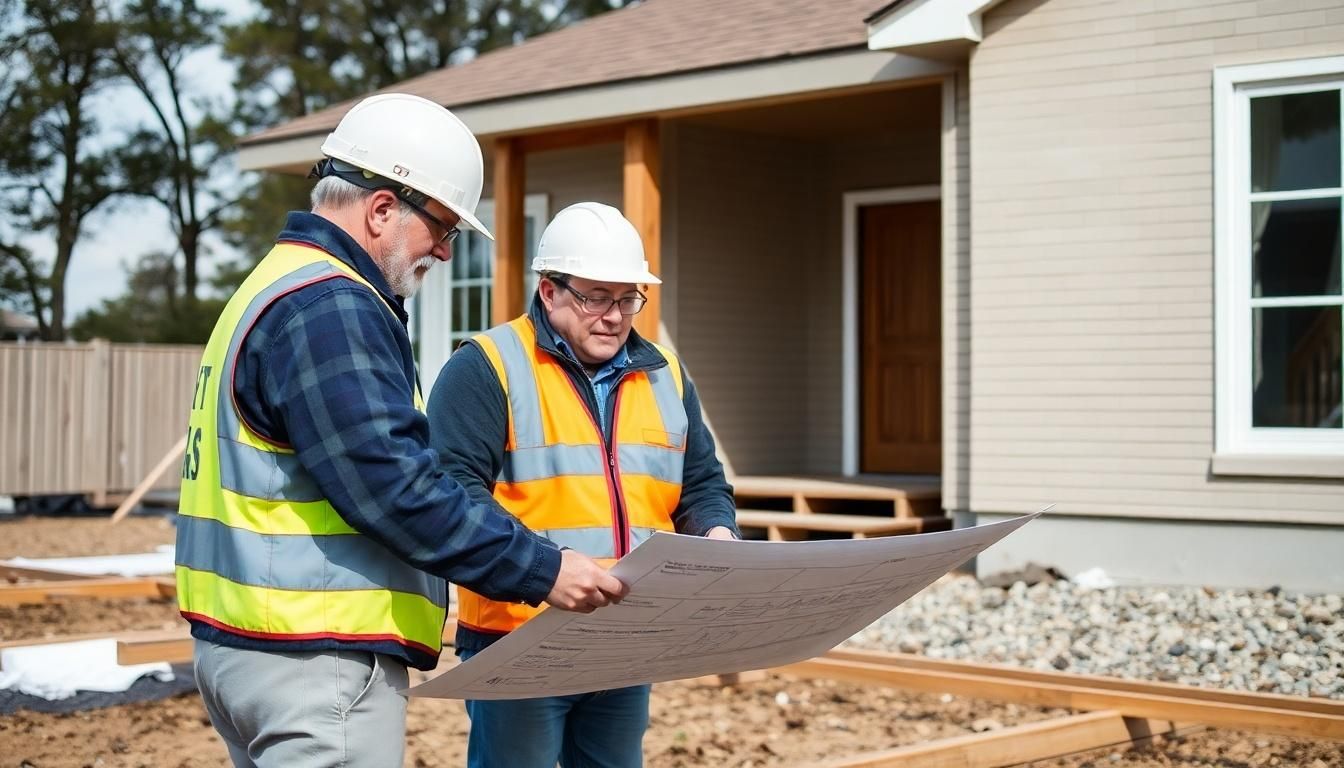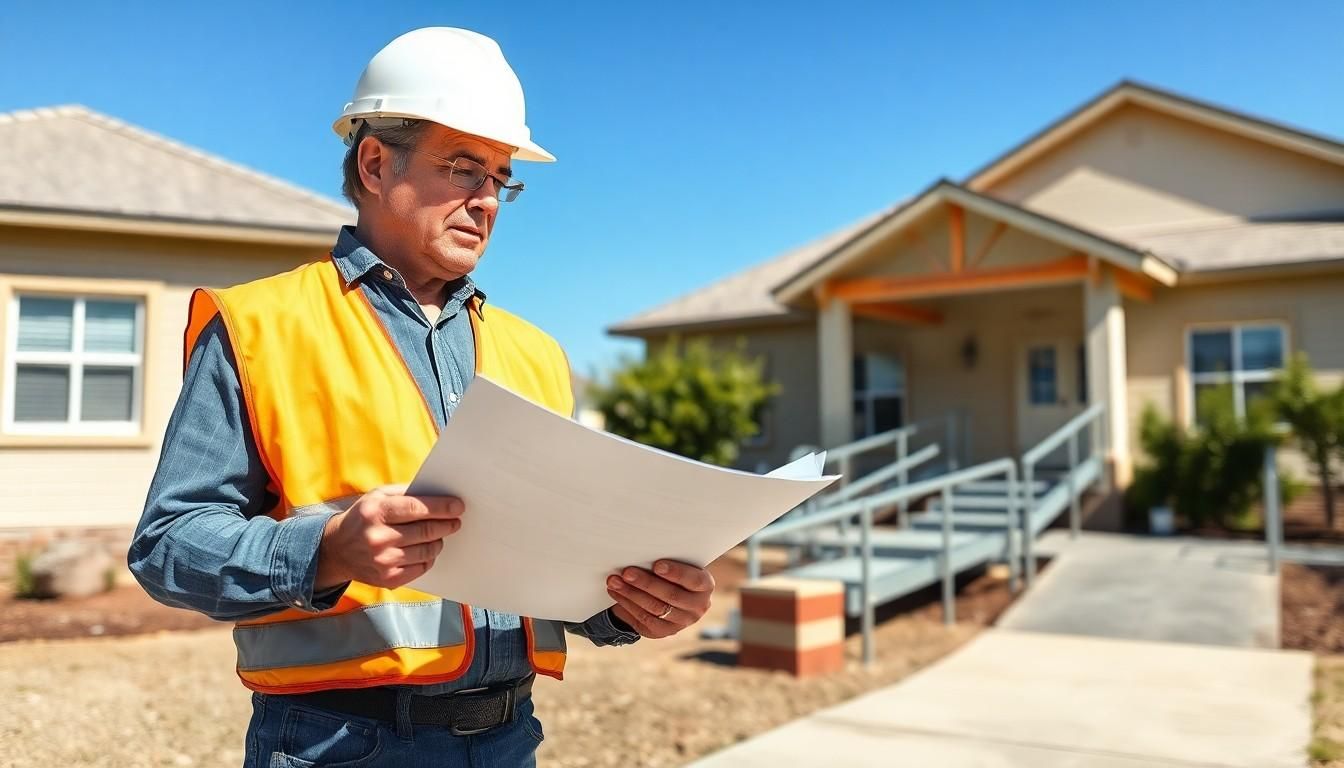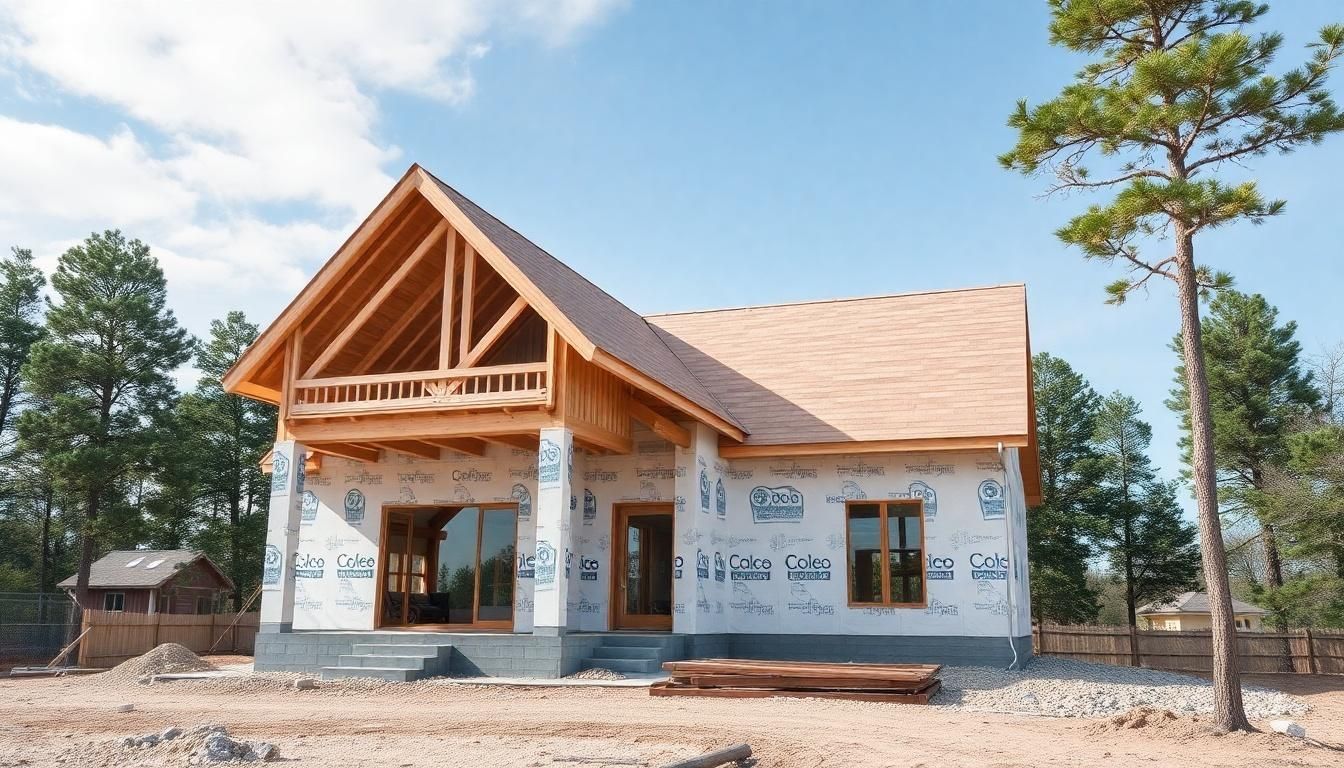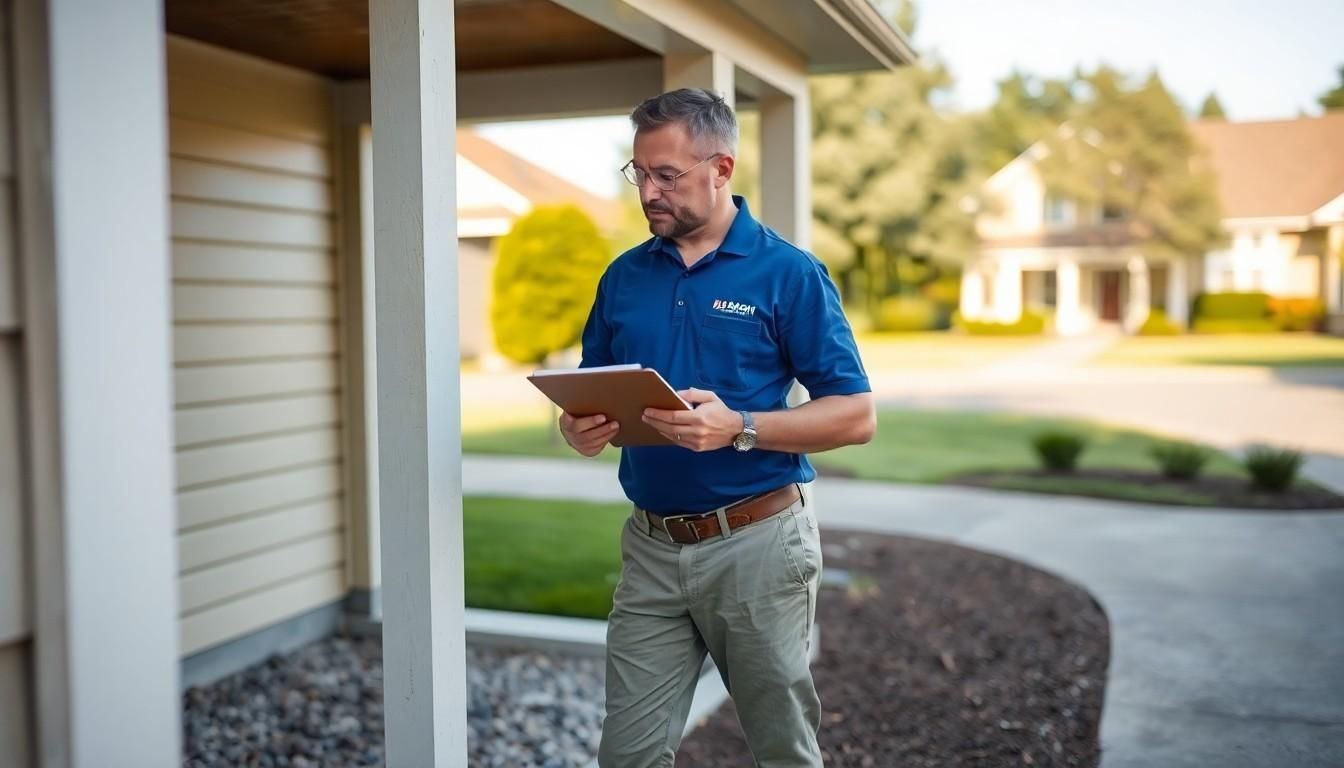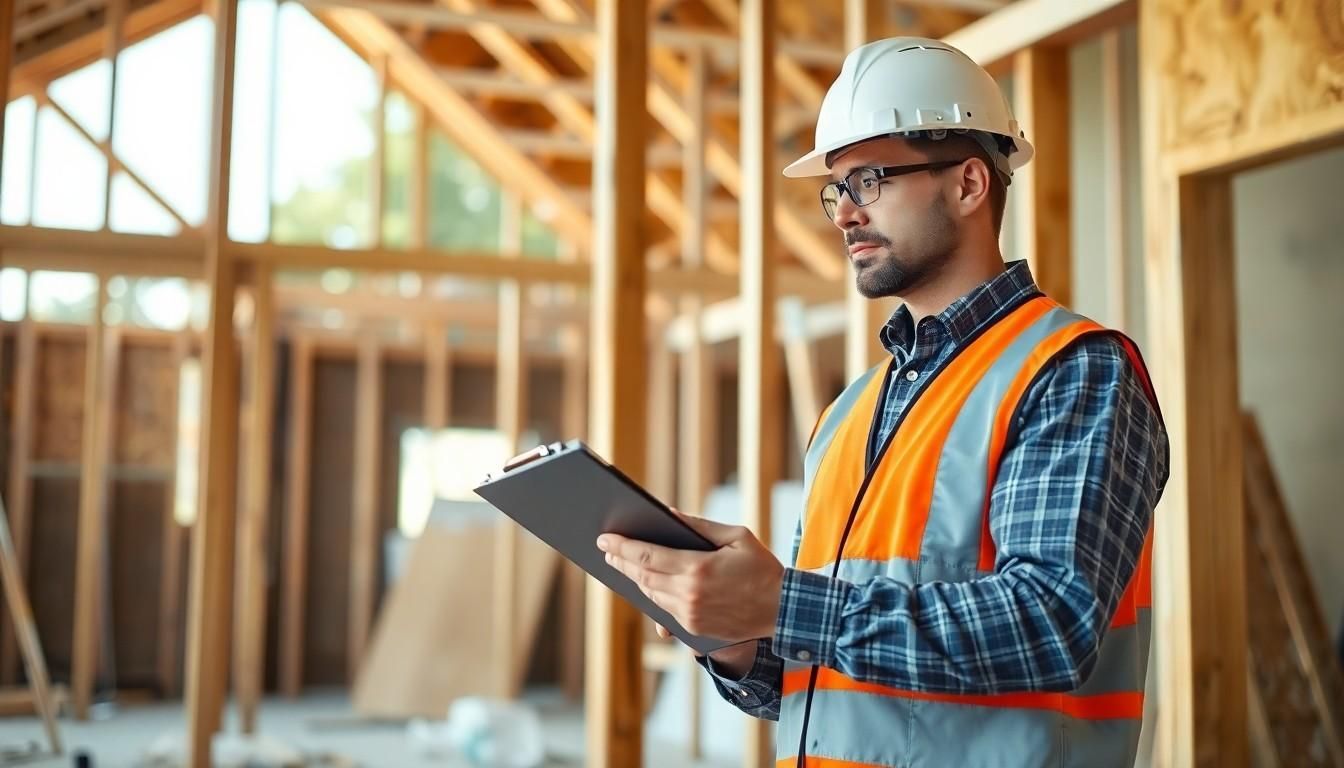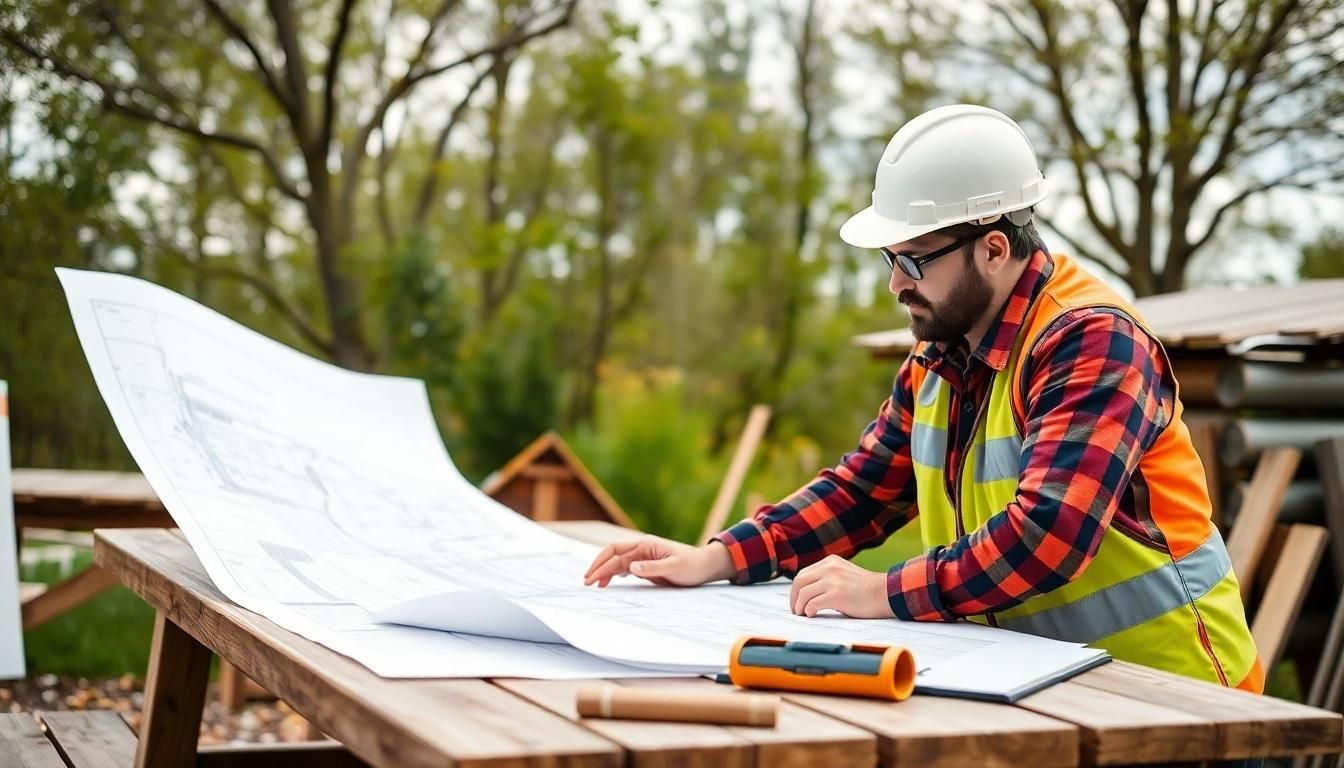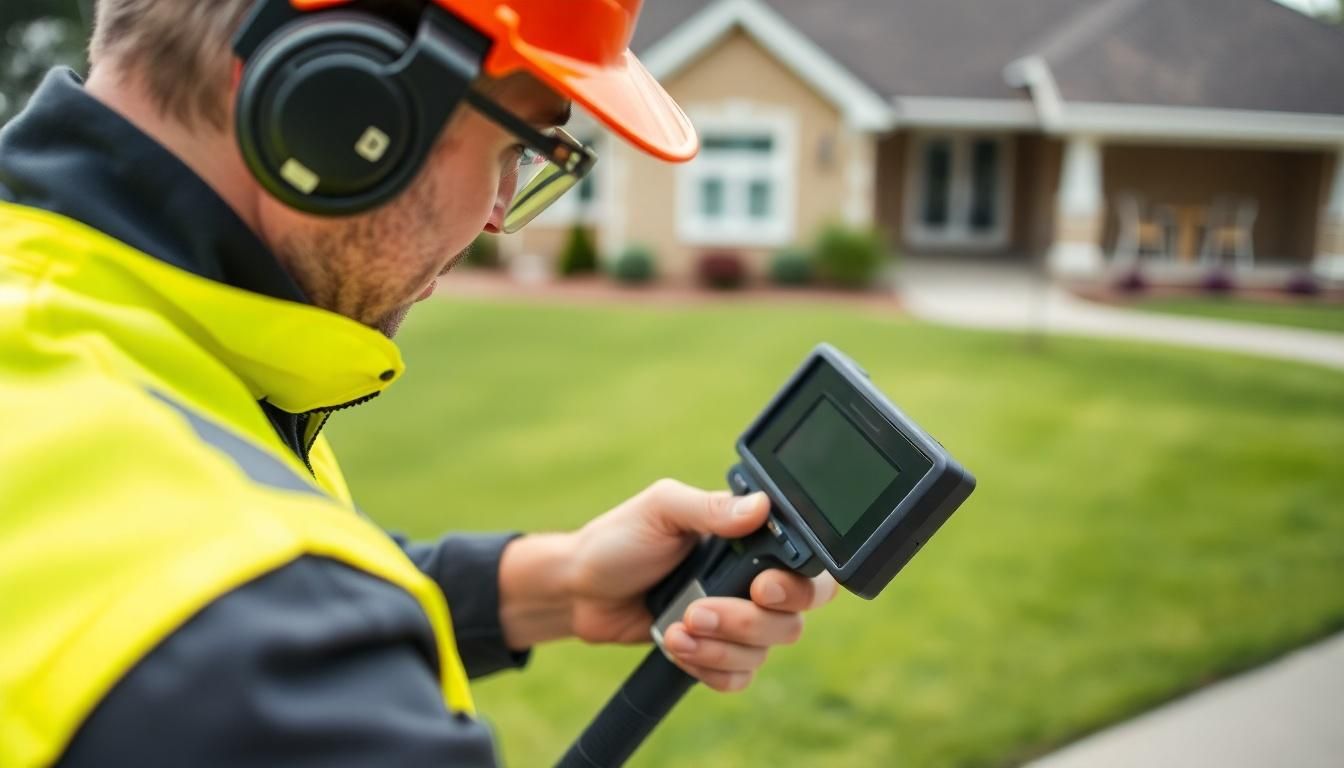Navigating Home Inspections: A Buyer’s Guide to Success
How home inspections can impact the home buying process is crucial for potential buyers. A home inspection can reveal hidden issues and provide valuable insights into the property's condition. Here are some ways inspections impact the home buying journey:
- Uncovering Hidden Problems: Inspections can reveal issues like structural damage or faulty wiring that aren't visible during a simple walk-through.
- Negotiation Power: Finding problems may allow you to negotiate a lower price or request repairs before closing.
- Informed Decisions: An inspection provides a clear picture of what you’re buying, helping you decide whether it's worth the investment.
Starting on the home buying process can be both exciting and challenging. One pivotal step in this journey is the home inspection. This step is vital because it helps uncover potential issues with the property, ensuring that your investment is sound.
Understanding the importance of inspections not only saves you from unforeseen repair costs but also empowers you during negotiations. By knowing the true condition of a home, you can make confident decisions, whether that's moving forward with the purchase, negotiating for repairs, or even walking away.
Home inspections are a smart investment for anyone looking to buy a property, as they safeguard your financial future and ensure you're making the most informed decisions possible.
Understanding Home Inspections
Home inspections are vital when buying a house. They provide a detailed view of the property's condition. Let's dive into the key parts of home inspections: home inspection contingency, inspection checklist, and inspection report.
A home inspection contingency is a clause in your offer. It lets you back out if major problems are found. This protects your investment.
The inspection checklist covers all areas of the house, from the roof to the foundation. It ensures nothing is overlooked.
Home Inspection Contingency
A home inspection contingency is a clause in the purchase agreement. It allows the buyer to back out of the deal if the inspection reveals significant issues. This contingency provides a safety net, ensuring you aren't stuck with a property that has major, costly problems. Many contingencies have a timeline, often seven days, to decide whether to proceed with the purchase.
Inspection Checklist
An inspection checklist is essential. It outlines all the areas a home inspector will review. Here's what’s typically included:
- Exterior Inspection: Checks for roof damage, proper drainage, and pest issues.
- Interior Inspection: Looks at walls, ceilings, and floors for signs of damage.
- Plumbing: Tests faucets, showers, and checks for leaks.
- Electrical: Ensures outlets are functioning and checks the electrical panel for safety.
- HVAC Systems: Examines heating, ventilation, and air conditioning systems for efficiency and safety.
- Fire Safety: Tests smoke detectors and checks fire-rated walls.
This checklist ensures the inspection is thorough, covering all vital components of the home.
Inspection Report
The inspection report is the final product of the inspection. It details all findings, highlighting both major and minor issues. This report can be lengthy, ranging from 20 to 80 pages. It serves as a valuable tool in negotiations, allowing you to request repairs or a price reduction based on the findings.
Understanding this report is crucial. It provides a comprehensive view of the home’s condition, helping you decide on the next steps. Whether negotiating with the seller or deciding to walk away, the inspection report equips you with the knowledge you need to make a wise choice.
Navigating the home inspection process is essential for any homebuyer. With these insights into contingencies, checklists, and reports, you're better prepared to tackle this important step in the home buying journey. Next, let's explore the key components of a home inspection to further improve your understanding.
How Home Inspections Can Impact the Home Buying Process
Home inspections are not just a formality—they are a powerful tool in the home buying process. They can significantly impact negotiations, help uncover hidden issues, and enable you to make informed decisions.
Negotiation Leverage
Negotiation leverage is a major advantage of a home inspection. If the report identifies problems—such as a leaky roof or faulty wiring—buyers can request repairs or negotiate a price reduction to cover the costs. In fact, buyers can save around $14,000 on average through these negotiations.
Uncovering Issues
A home inspection is like peeling back the layers of a house to reveal what’s underneath. It uncovers issues that aren’t visible at first glance. Common problems include structural damage, plumbing leaks, and electrical faults. These findings are crucial because they affect the property's value and safety. By identifying these issues early, you avoid future headaches and unexpected expenses.
Informed Decisions
Making informed decisions is the ultimate goal of a home inspection. The inspection report provides a detailed view of the property's condition. This knowledge empowers you to decide whether to move forward with the purchase, negotiate repairs, or walk away if the issues are too severe.
A home inspection isn't about finding a perfect house—it's about understanding what you're buying. Even new homes can have minor issues. The key is knowing what you're dealing with and planning accordingly.
With this understanding of how inspections impact the buying process, you're better equipped to handle any surprises that come your way. Now, let's dive into the key components of a home inspection to further improve your home-buying knowledge.
Key Components of a Home Inspection
A home inspection looks at many parts of a house. It's all about making sure things are safe and work well. Here are the important parts inspectors check:
Structural Integrity
Inspectors examine the foundation, walls, and roof. They look for cracks or signs of wear. This ensures the house is stable and safe.
Roof and Gutters
The condition of the roof is assessed. Missing shingles and leaks are red flags. Gutters are checked to see if they direct water away from the house.
Plumbing
Inspectors check pipes and water systems. They look for leaks or outdated parts that could cause trouble later.
Electrical Systems
Wiring and outlets are inspected for safety. This helps prevent hazards like shocks or fires.
HVAC Systems
Heating and cooling systems are checked for efficiency and function. This ensures comfort in all seasons.
Exterior and Interior
The outside of the house, like siding and windows, is reviewed. Inside, things like walls, ceilings, and floors are inspected.
Each part of the inspection helps reveal hidden issues. Knowing these can help you make a smart buying decision.
Exterior Inspection
The first impression of a home often starts with its exterior. Inspectors will examine:
- Roof: Checking for missing shingles, leaks, or poor installation that might let water seep in. A damaged roof is a common reason for inspection failure.
- Foundation and Grading: Inspectors look for cracks or settling that indicate foundation issues. They also check if the grading slopes away from the house to prevent water damage.
- Exterior Walls: They ensure there are no missing or damaged siding and that the soil is not too close to the house, which might invite pests.
- Garage and Carport: Testing the garage door's functionality and ensuring proper ventilation to prevent carbon monoxide buildup.
Interior Inspection
Moving indoors, the inspection covers crucial systems that keep a home functional and safe:
- Plumbing: Inspectors check for leaks, water pressure, and the type of pipes. Old pipes might need further inspection to avoid future issues.
- Electrical Systems: All outlets are tested, and inspectors ensure that there are ground fault circuit interrupters in key areas like kitchens and bathrooms to prevent electrical hazards.
- HVAC: The heating, ventilation, and air conditioning systems are evaluated for efficiency and potential repairs needed.
- Water Heater: Inspectors assess the age and condition of the water heater, predicting its remaining lifespan.
Key Safety Concerns in Home Inspections
Safety is a top priority in any home inspection. Inspectors focus on several key areas to ensure the home is safe and sound.
First, they check the electrical systems. Faulty wiring and outdated components can be fire hazards. Inspectors look for these issues to keep you safe.
Next, plumbing is examined. Leaks and water pressure problems can lead to mold and damage. Inspectors make sure everything is in working order.
Structural integrity is also important. Foundation cracks or roof damage can be costly and dangerous. Inspectors identify these issues early on.
Finally, inspectors assess the heating, ventilation, and air conditioning (HVAC) systems. They check for efficiency and safety, ensuring good air quality.
- Fire Safety: Ensuring smoke detectors work and checking fire ratings for walls, especially in homes with attached garages.
- Termites and Mold: While not always included, inspectors might hint at potential mold or termite issues. These require separate inspections but can significantly impact a home's value and safety.
- Structural Integrity: Inspectors look for signs of structural damage that could pose safety risks, like significant cracks or moisture problems leading to mold.
Understanding these key components helps buyers and sellers alike prepare for an inspection. Knowing what to expect can make the process smoother and more effective, ensuring any potential issues are addressed promptly.
Next, we'll explore the potential red flags that might arise during a home inspection.
Potential Red Flags in Home Inspections
Home inspections can reveal hidden issues that might not be obvious at first glance. Let's explore some of the potential red flags that could arise during an inspection.
Structural Damage
Structural damage is a serious concern in any home inspection. It can affect the safety and stability of the entire property. Inspectors look for:
- Foundation Cracks: These can range from minor hairline cracks to severe horizontal cracks with bulges. Such issues often require immediate attention and can be costly to fix.
- Sagging Roofs or Floors: These are warning signs that the home's structure might have issues. If left unchecked, it can cause bigger problems in the future.
Ignoring structural damage can lead to expensive repairs and even structural failure, so it's crucial to address these issues promptly.
Electrical Issues
Electrical problems are another common red flag during inspections, especially in older homes. Some key concerns include:
- Outdated Wiring: Homes built before the 1970s might have aluminum wiring, which is prone to overheating and poses a fire risk.
- Faulty Electrical Panels: Panels with multiple wires connected to a single breaker can lead to frequent trips and are a safety hazard.
- Missing GFCIs: Ground fault circuit interrupters are essential in areas like kitchens and bathrooms to prevent electrical shocks.
Consulting a licensed electrician for a thorough assessment is wise if these issues are found. Updating wiring and panels can improve safety and efficiency.
Plumbing Problems
Plumbing issues can range from minor leaks to significant system failures. Common concerns include:
- Leaky Faucets and Pipes: Even small leaks can lead to water damage and higher water bills if not fixed.
- Outdated Piping Systems: Polybutylene pipes, used from 1978 to 1994, are known for frequent leaks and should be replaced.
- Low Water Pressure: This might indicate blockages or other issues within the plumbing system.
Addressing plumbing problems early can prevent costly water damage and maintain the home's efficiency.
Recognizing these potential red flags can help buyers make informed decisions and negotiate effectively. It's essential to understand the severity of these issues as they can significantly impact a property's value and safety.
Next, we'll explore how to make the most of your home inspection by preparing properly and interpreting the results effectively.
Making the Most of Your Home Inspection
Home inspections are a pivotal part of the home buying process. To ensure you're getting the most out of your inspection, focus on preparing for inspection, hiring a professional, and interpreting results effectively.
Preparing for Inspection
Preparation is key to a successful home inspection. Here’s how you can get ready:
- Create a Checklist: Identify areas of concern such as the roof, plumbing, and electrical systems. A checklist ensures nothing is overlooked.
- Clear Access: Ensure the inspector can easily access all areas, including the attic and basement.
- Make Repairs: Address minor issues like leaky faucets or broken light bulbs before the inspection. This can improve the overall impression of your home.
- Gather Documents: Have maintenance records and repair receipts ready. This transparency can help build trust with potential buyers.
Hiring a Professional
Choosing the right inspector is crucial. Here are some tips:
- Verify Credentials: Ensure the inspector is licensed and experienced. Look for reviews or ask for recommendations from trusted sources.
- Ask Questions: Before hiring, ask what their inspection covers and if they have experience with homes like yours.
- Be Present: Attend the inspection to ask questions and understand the findings firsthand. This engagement allows you to gain valuable insights about the property.
Interpreting Results
Once you have the inspection report, understanding it is vital:
- Focus on Major Issues: Prioritize addressing significant problems like structural damage or outdated wiring.
- Use the Report for Negotiations: If there are major issues, use the report to negotiate repairs or a price reduction.
- Plan for Future Maintenance: The report can also serve as a guide for future upkeep. Address minor issues now to prevent them from becoming major problems later.
Making the most of your home inspection involves thorough preparation, hiring the right professional, and carefully interpreting the results. By doing so, you can ensure a smooth buying process and safeguard your investment.
Next, we'll address some frequently asked questions about home inspections to further improve your understanding of this essential step in the home buying journey.
Frequently Asked Questions about Home Inspections
How can a home inspection affect the sale of a house?
A home inspection can significantly impact the sale of a house, primarily through negotiation and necessary repairs. When an inspection reveals issues, buyers often use these findings to negotiate a lower price or request that repairs be completed before the sale is finalized. For sellers, this means that the inspection report can either be an opportunity to showcase the home's quality or a challenge that requires addressing potential defects.
Negotiation leverage is a crucial aspect of how inspections influence the sale. Buyers gain more power in negotiations when the inspection uncovers significant problems. For instance, if the roof is leaking or the foundation has cracks, buyers might ask for a price reduction to cover repair costs. Alternatively, they might request that the seller fix these issues before closing the deal.
What is the biggest red flag in a home inspection?
The most significant red flags in a home inspection often relate to safety issues and major defects. Safety concerns, such as faulty wiring or structural damage, can pose immediate risks and require urgent attention. For example, outdated electrical systems can lead to fires, while foundation problems might compromise the building's stability.
Major defects like these can heavily influence a buyer's decision. If serious issues are found, buyers might reconsider their interest in the property or demand substantial concessions. It's essential for both buyers and sellers to understand that not all defects carry the same weight. Prioritizing repairs for critical safety concerns is vital for maintaining the property's livability and value.
How could a home inspection help a buyer at closing?
A home inspection can be a powerful tool for buyers during the closing process. It provides negotiation leverage and supports informed decisions. With a detailed inspection report, buyers are equipped to make requests for repairs or price adjustments based on the property's condition. This can lead to significant savings, as buyers can avoid unexpected costs after purchasing the home.
Additionally, the inspection report helps buyers decide if they should move forward with the purchase. Understanding the actual state of the home lets buyers assess the benefits and drawbacks clearly, ensuring a wise investment. By tackling any issues before closing, buyers can step into homeownership with assurance and peace of mind.
Conclusion
Accurate Home and Commercial Services is dedicated to supporting home buyers through the essential process of home inspections. Located in Conroe, TX, and serving the Greater Houston area, they offer comprehensive inspection services that prioritize customer satisfaction and property safety. Their attention to detail and full-service approach ensure that buyers have a clear understanding of the property's condition before making a purchase.
Home inspections are crucial in the home buying process. They uncover hidden issues and provide negotiation leverage, allowing buyers to make informed decisions. An inspection can reveal critical safety issues or major defects that might otherwise go unnoticed, helping buyers avoid costly surprises after closing.
Buyers can confidently steer the complexities of home inspections by choosing a trusted provider like Accurate Home and Commercial Services. Their expert insights ensure potential problems are identified early, giving buyers the information they need to negotiate repairs or price adjustments effectively.
A thorough home inspection empowers buyers to make informed decisions, safeguarding their investment and ensuring their new home meets their expectations. For more information on how Accurate Home and Commercial Services can assist you, visit their home inspections page.
